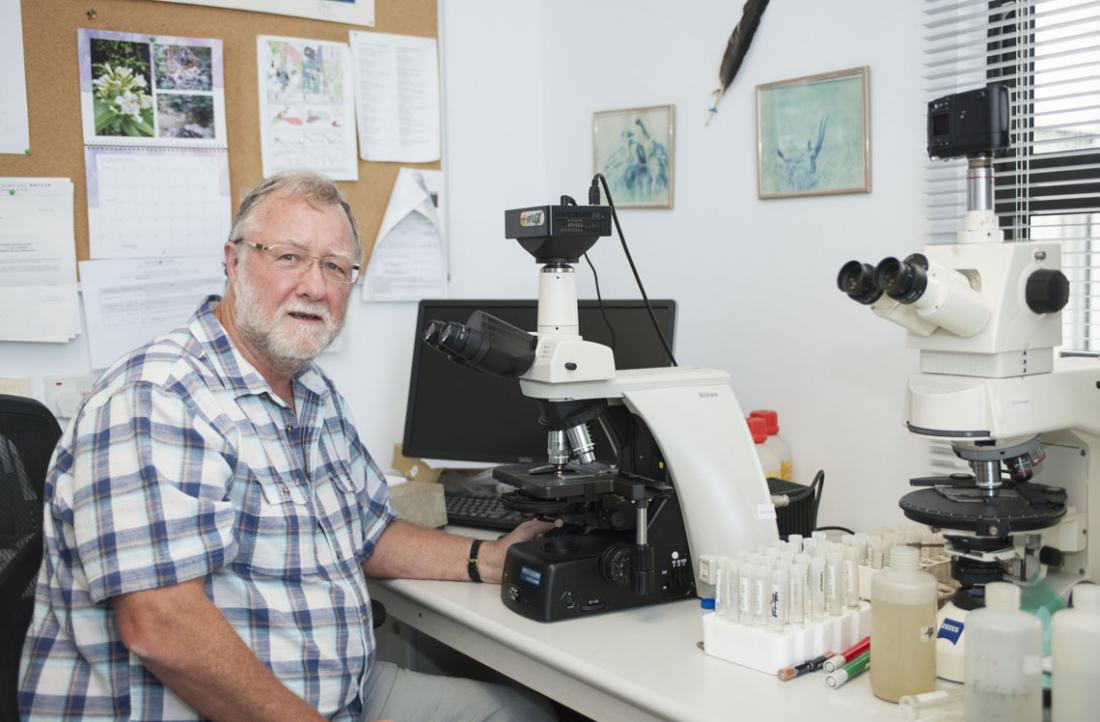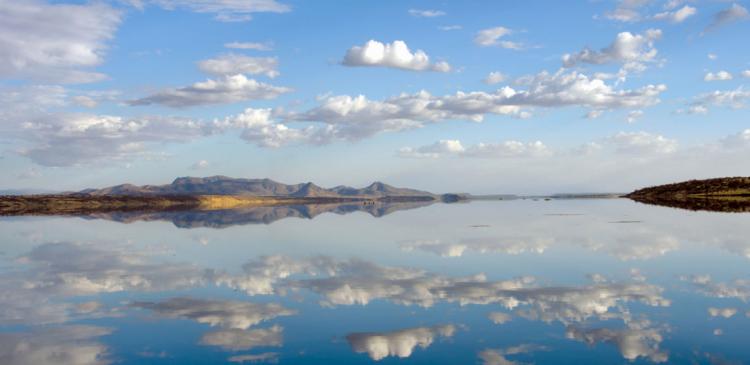Professor Richard Bernhart Owen is the first scholar to provide a continuous and detailed multi proxy record of climate change in Kenya extending back around one million years.
Professor Richard Bernhart Owen of the HKBU Department of Geography has analysed African lake sedimentary cores and established connections between a drying climate and technological and evolutionary changes in early humans. He also concluded that the impact of climate change had forced ancestral humans to learn new ways of living and develop new technologies, for example, the ancestors used big and rough stone tools in the beginning and gradually developed some light, handy and more varied tools. The research has been published in Proceedings of the National Academy of Sciences of the United States of America (PNAS), one of the world’s most-cited multidisciplinary scientific journals. The research, titled as “Progressive aridification in East Africa over the last half million years and implications for human evolution”, involved collaborative studies between Professor Owen and researchers from Binghamton University, University of Arizona in the US, University of Saskatchewan in Canada, and several other institutions. The team also cooperated extensively with several organisations in Kenya. In previous investigations, researchers have used fossils, artefacts, and lake cores to support theories of connections between environmental change in Africa and the evolution of anatomically modern humans, but the environmental evidence from these studies was based on cores that were too distant from the fossil sites to make firm comparisons. Professor Owen and his team members analysed sedimentary cores from Lake Magadi in Kenya and were the first to provide a continuous and detailed multi proxy record of climate change extending back around one million years. Beginning around 575,000 years ago, the ancient lake began a long-term drying trend involving a change towards more saline and alkaline conditions. The trend was punctuated by many wet-dry cycles, but became very arid between 525,000 and 400,000 years ago and after 350,000 years ago. The earlier episode of aridification at Lake Magadi occurred concurrently with extinctions of large grazing mammals in the nearby Olorgesailie Basin and a change from Acheulean style stone tools, before half a million years ago, to the first known Middle Stone Age artefacts, which appeared by 320,000 years ago. It is this overlap between a switch in stone tool industries, mammal extinctions and a major climate change that helps to prove the importance of climate variability in evolution. Professor Owen said, “Much evidence for human evolution has been gathered from the area, but linking those records to detailed environmental records was missing until now. There is a big gap in the records between the last Early Stone Age tools and the appearance of Middle Stone Age tools. Our results plugged that gap with a continuous environmental record.” Professor Owen has suggested that the drying climate and climate variability may have led to an uneven distribution of resources that caused humans to travel more widely and mix with other groups to access raw materials. This would, in turn, have provided a selective pressure favouring technological change and the ability to survive in a difficult environment using new technologies. The research clearly documents the impact of climate change on ancestral humans, who had to learn new ways of living. Professor Owen notes that modern climate change will also require today’s populations to change and adapt. “We now have a major impact on our environment and should we allow change to occur too quickly then our societies may struggle to adjust successfully, as our ancestors did long ago,” said Professor Owen. Media enquiries : Professor Richard Bernhart Owen of the Department of Geography (3411 7188) Mavis Wongof the Communication and Public Relations Office (3411 7964, [email protected])




